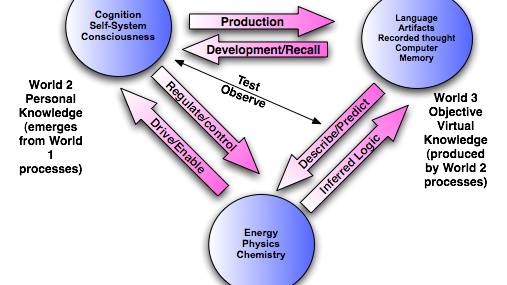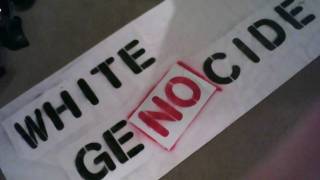Popper’s Theory of Epistemology: A Perpetual Falsifiable Journey Towards Truth
Source
What does it feel like when you realize that a scientific theory you had complete faith in is proved wrong?
According to Karl Popper’s Logic of Scientific Discovery all you can do with a theory is prove it wrong. And that has been widely accepted now, so that is why scientists are so happy when their theories are proved wrong because that is itself something that can be known and it thus limits the possibilities of how nature works and how it was “designed”. It is not so much by Intelligent Design, but by Design Intelligence that we come to know the way nature actually works as opposed to how some people would like it to work, i.e. simplistically. Nature is complicated and even complex. Right now we are on the verge of a disproof of a high magnitude, if the Higgs particle is not found soon, and if there is no super-symmetry, and neutrinos really do go faster than the speed of light. We are not there yet, but this would be some big disproofs of well accepted parts of the standard model. And we will have to go back to the drawing board, no matter how elegant those theories are. If they are not true of nature, then we will start from scratch and try to find something better. And we will feel good about it because our theory was disproved, and so that takes us at least one step closer to knowing something more useful about the structure of nature.
Yuksel.org:
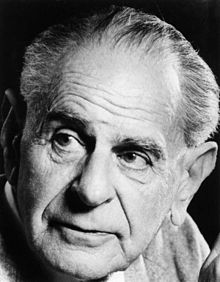 Though Popper did not believe in the possibility of attaining the ultimate truth, he was not a skeptic. To him, we can expand our understanding and grow our knowledge. He suggested an idiosyncratic criterion to distinguish scientific knowledge from other source of knowledge: FALSIFIABILITY. A scientific hypothesis must provide a logical possibility to be refuted by a probable true observation statement. Therefore, according to Popper, falsifiability is a required characteristic for a scientific theory. Science evolves by shedding its falsified theories. Popper’s falsification model is similar to the notion of "natural selection". The best theory survives.
Though Popper did not believe in the possibility of attaining the ultimate truth, he was not a skeptic. To him, we can expand our understanding and grow our knowledge. He suggested an idiosyncratic criterion to distinguish scientific knowledge from other source of knowledge: FALSIFIABILITY. A scientific hypothesis must provide a logical possibility to be refuted by a probable true observation statement. Therefore, according to Popper, falsifiability is a required characteristic for a scientific theory. Science evolves by shedding its falsified theories. Popper’s falsification model is similar to the notion of "natural selection". The best theory survives.He suggested two qualities as a virtue of good scientific theory:
1. A good (useful, not necessarily true!) theory is a great challenger. It is intrinsically open to all kind of examinations. The broader the range of the claim the better is the theory, since wide-ranging claims are highly falsifiable. The life-span of the theory against the attack of falsificationists is not relevant for determining its quality.
2. A good theory is clear and precise. It does not hide behind vague expressions, or it does not act as a double-dealer. Indeed, the less a theory shows this quality the less information it provides.
Falsificationism encourages all kind of speculative theories, as long as they are stated clearly and precisely. The inadequate or the unfitting ones will be tossed away by examinations. A scientific theory can never be said that it is true, but it can be said that it is closer to the truth than its predecessors. Confirmation is not considered as a valid method, any observational statement whether be singular or general, cannot be true, but may be better than previous ones. Falsificationists do not accept general or singular "laws". Here is a dramatic example: According to Popper, the statement, "Planets rotate around the sun" still should be considered " a surviving theory" waiting to be falsified.
Let’s evaluate the following examples according to Popper’s theory of epistemology:
Whoever smokes over 17 cigarets per day, will die within 7 days. (A good theory).
All the philosophy instructors in UA are male. (A good theory, but not better than the previous example)
Most of the philosophy instructors in UA are crazy. (A bad theory, "most" and "crazy are vague, thus, difficult to falsify it)
Speed of light is about 300,000 km/sec. (A good theory)
Speed of light is 299,000 km/sec. (A good theory, better than the previous one)
The existence of ghosts is a probability bouncing between one out of googoplex to hundred percent. (A bad theory; vague and non-falsifiable)
If you have faith in me without any doubt in your heart, you won’t have any problem. (A bad theory; vague and non-falsifiable).
English is better than French. (A bad theory; vague and non-falsifiable)
Popper’s theory of falsification is better than Inductivism. (A bad theory; vague and non-falsifiable!).
Article from: yuksel.org
Karl Popper’s the Three Worlds of Knowledge
From: KnowledgeJump.com
One of the more popular epistemology models (except for perhaps in the training/learning/behavioral sciences) is Sir Karl Popper’s writings on the Three Worlds of Knowledge [PDF]. The behavioral sciences (knowledge/learning/management professions) seem to prefer and stay within the realm of Michael Polanyi’s concept of tacit and explicit knowledge. However, Polanyi’s epistemology is narrower and has a limited basis for understanding knowledge as compared to Popper’s work, which provides a broader epistemological foundation.
Karl Popper theorizes that there are three worlds of knowledge:
World 1 is the physical universe. It consists of the actual truth and reality that we try to represent, such as energy, physics, and chemistry. While we exist in this world, we do not always perceive it and then represent it correctly.
World 2 is the world of our subjective personal perceptions, experiences, and cognition. It is what we think about the world as we try to map, represent, and anticipate or hypothesis in order to maintain our existence in an every changing place. Personal knowledge and memory form this world, which are based on self-regulation, cognition, consciousness, dispositions, and processes. Note that Polanyi’s theory of tacit and explicit knowledge is based entirely within this world.
World 3 is the sum total of the objective abstract products of the human mind. It consists of such artifacts as books, tools, theories, models, libraries, computers, and networks. It is quite a diverse mixture. While knowledge may be created and produced by World 2 activities, its artifacts are stored in World 3, for example a claw-hammer, Maslow’s hierarchy of needs, and Godel’s proof of the incompleteness of arithmetic. Popper also includes genetic heredity (if you think about it, genes are really nothing more than a biological artifact of instructions).
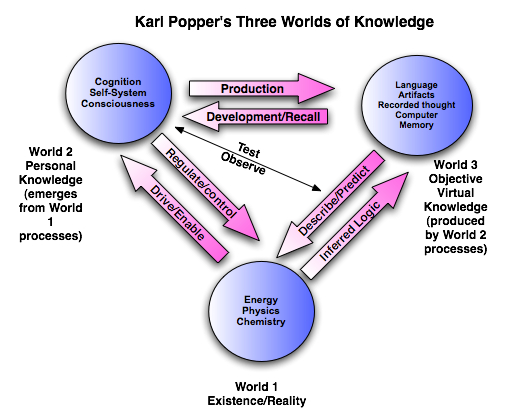

Drums are an example of World 3 knowledge as the drumsticks and taut skin and shape of the drum clue us in on what it is and how to use it.

Books are another example of Word 3 knowledge as they store an array of ideas, such as knowledge or models.
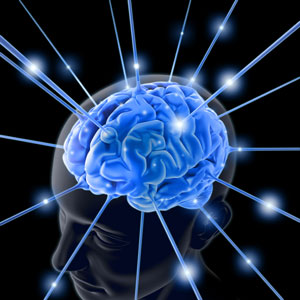
World 2 knowledge is the tacit and explicit knowledge that we have within us.
[...]
Read the full article at: knowledgejump.com
